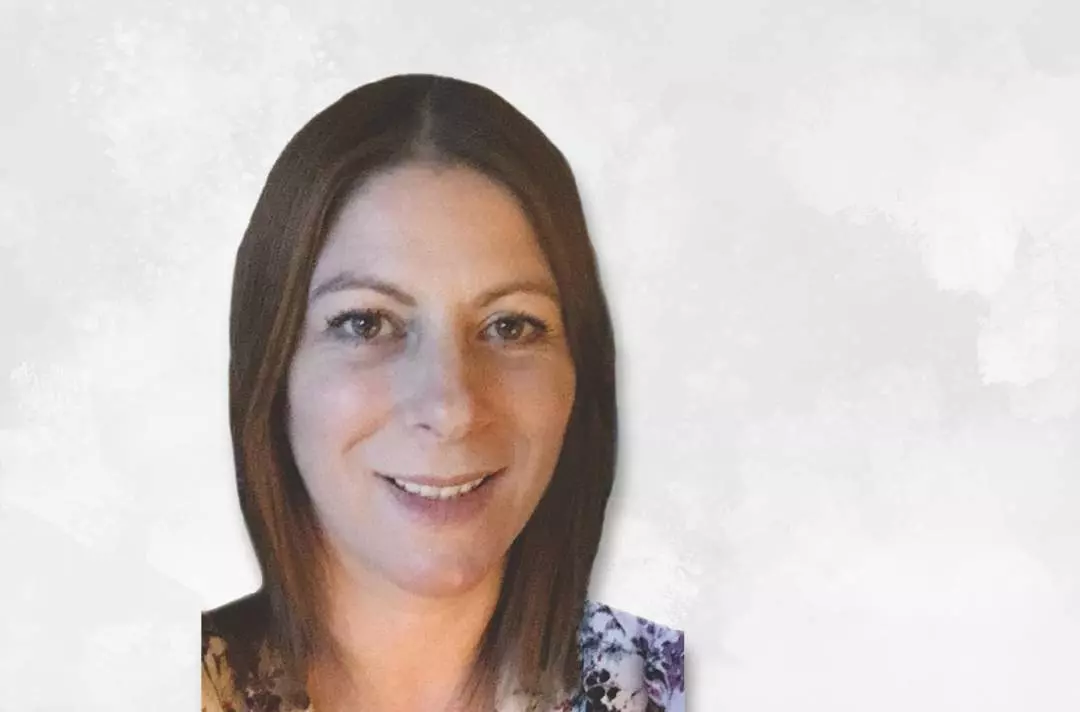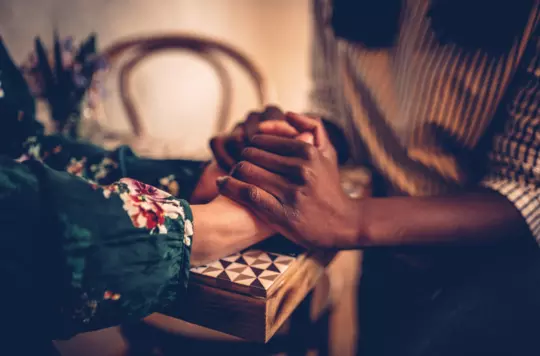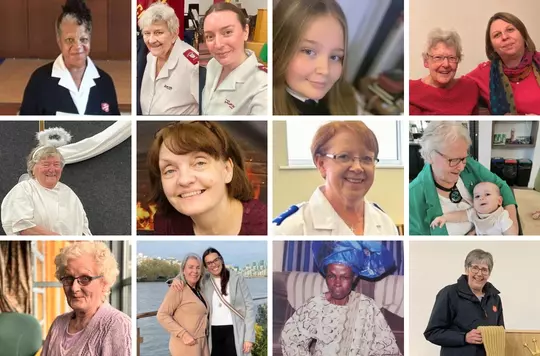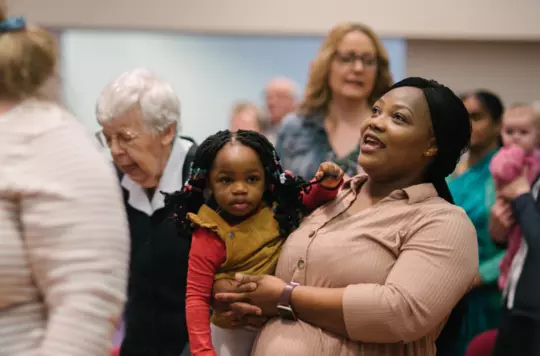8 March 2025
How is The Salvation Army working to stop domestic abuse?

Sarah Coates (Family Ministries Department) tells Salvationist about her new role as domestic abuse response coordinator.
How did you come into this role?
I was woken up at 3.30am by the ping of my email and saw an advert for this position. My heart quickened and I felt God wanted me to apply.
Why is responding to domestic abuse essential as Christians?
We believe everyone is made in God’s image. Domestic abuse is an injustice that destroys lives. It is an epidemic in our society, and the Church has a crucial role to play in responding. Isaiah 1:17 says ‘learn to do good; seek justice, rebuke the oppressor; defend the fatherless, plead for the widow’ (New King James Version).
As Christians, we are called to be Christlike. Jesus did not just act righteously; he loved righteousness (see Hebrews 1:9). He was bold and spoke up against injustice, even when faced with opposition, including from religious leaders.
Why is this a challenge for the Church?
Research undertaken by a group of churches in Cumbria with Restored called In Churches Too revealed that 1 in 4 churchgoers experience domestic abuse – the same rate as non-churchgoers. Over the years, I have facilitated domestic abuse training for numerous churches and heard people say, ‘It doesn’t happen here.’
To support victims and survivors effectively, churches must address the needs of those within the Church. Research by Oakley and Wright in 2023 said that 84 per cent of Christian survivors disclosed their experience to a person with a role in the Christian community, but 36 per cent said the response made things worse.
Further findings by Amy Quinn-Graham as part of the PhD level research commissioned by Family Ministries sadly support this within The Salvation Army too. First, victim-survivors face a denial. Second, they experience a sense of danger. Third, there is distrust that any disclosure will remain confidential.
This is not about putting victims or the Church down, but starting the conversation, regaining trust and changing the narrative.
How does your role fit in with Family Ministries?
Some may not immediately associate the role with Family Ministries, but it is highly relevant since domestic abuse affects all members of the family and so it is completely connected with Family Ministries. The department’s passion and commitment to families drive the necessity to recognise the devastating impact domestic abuse can have on the family unit.
It grieves God’s heart when families are torn apart by such violence, which is why Family Ministries is dedicated to supporting everyone affected, including the perpetrator. My role will include facilitating the Army’s strategic response, expanding the conversation, and developing the exciting initiative of establishing corps and centres as Restored Beacon churches.
Why are you passionate about the work?
My personal experiences have profoundly influenced my passion for responding to domestic abuse. As a child, I lived in a home where there was domestic abuse and, as a young adult, I was in a relationship that was controlling and coercive, so I understand the impact it can have, even years later.
I have worked with victims and survivors for over 20 years and managed a refuge for Women’s Aid. These experiences have shown me the transformative power of this ministry, offering hope and inspiration. The Lord has called me into this ministry, and I am committed to using my experiences to help others.
What does the future of the Army’s response look like?
It looks promising. The department has established a strong foundation, and it is now time to build the infrastructure to support the Army’s response. It is crucial to emphasise that everyone has a role to play in effectively addressing the needs of all victims of domestic abuse.
We must recognise that domestic abuse can affect anyone, and it is our collective responsibility to stand up and speak out against this evil. I am excited to move forward and continue building on the excellent work initiated by the Family Ministries Department.
What steps can people take?
For too long, domestic abuse has thrived on secrecy and shame. Let’s begin with a conversation and, when we do, I believe we can start to change the story for victims, survivors and perpetrators. It’s time for the Church to be brave and speak out! Reach out to us at familyministries@salvationarmy.org.uk.
Discover more

Lieutenant Amanda Sewell (Thorndale Family Centre) tells Salvationist about new domestic abuse training in the Ireland Division.
Major David Betteridge shares an update on research within The Salvation Army.

Women from across the territory celebrate other women who have influenced them in their faith.

Support, training and resources to inspire families and individuals to flourish and develop in their faith journey.